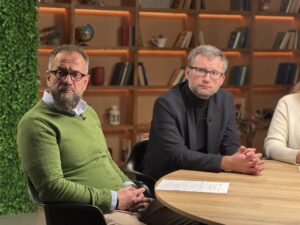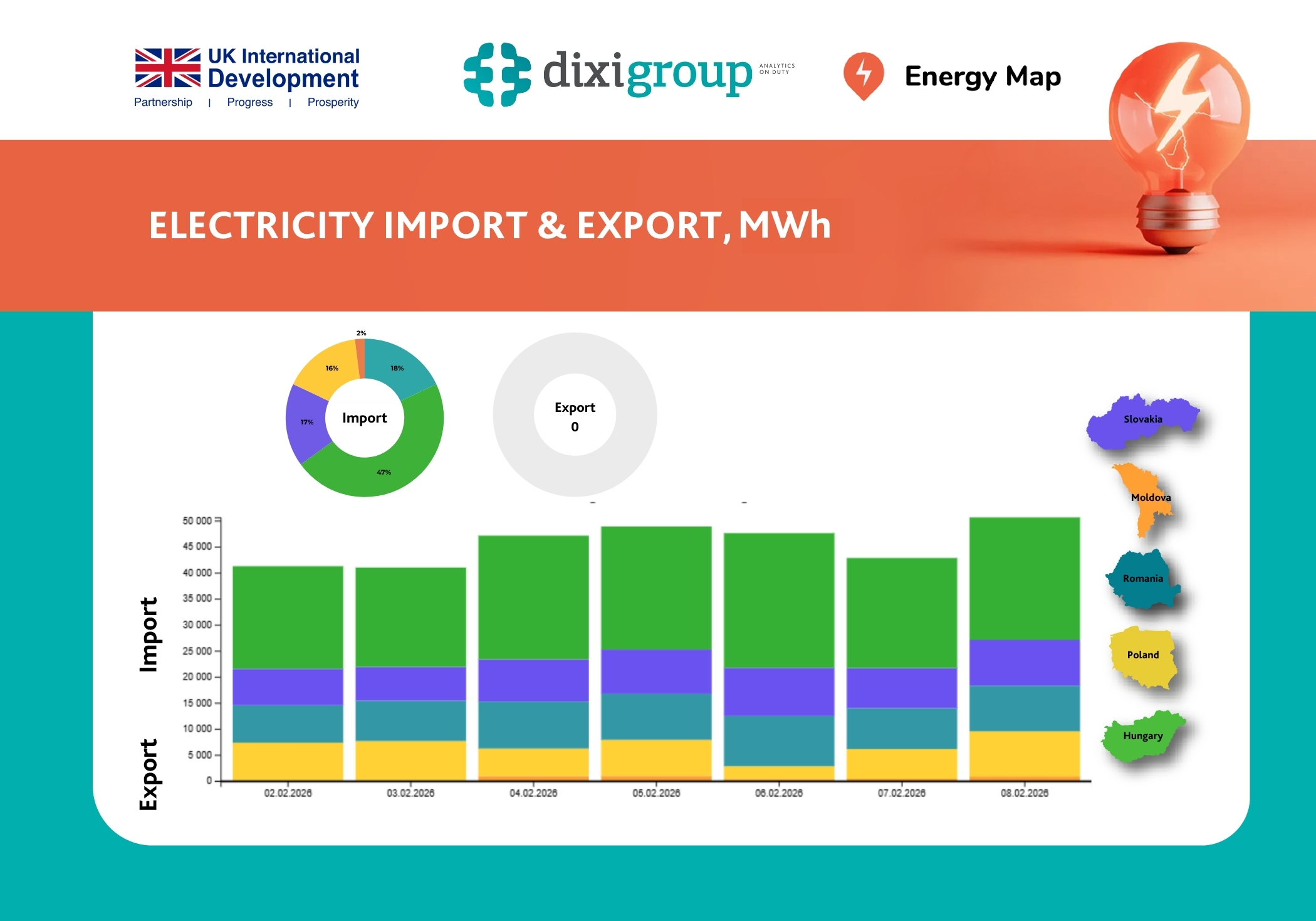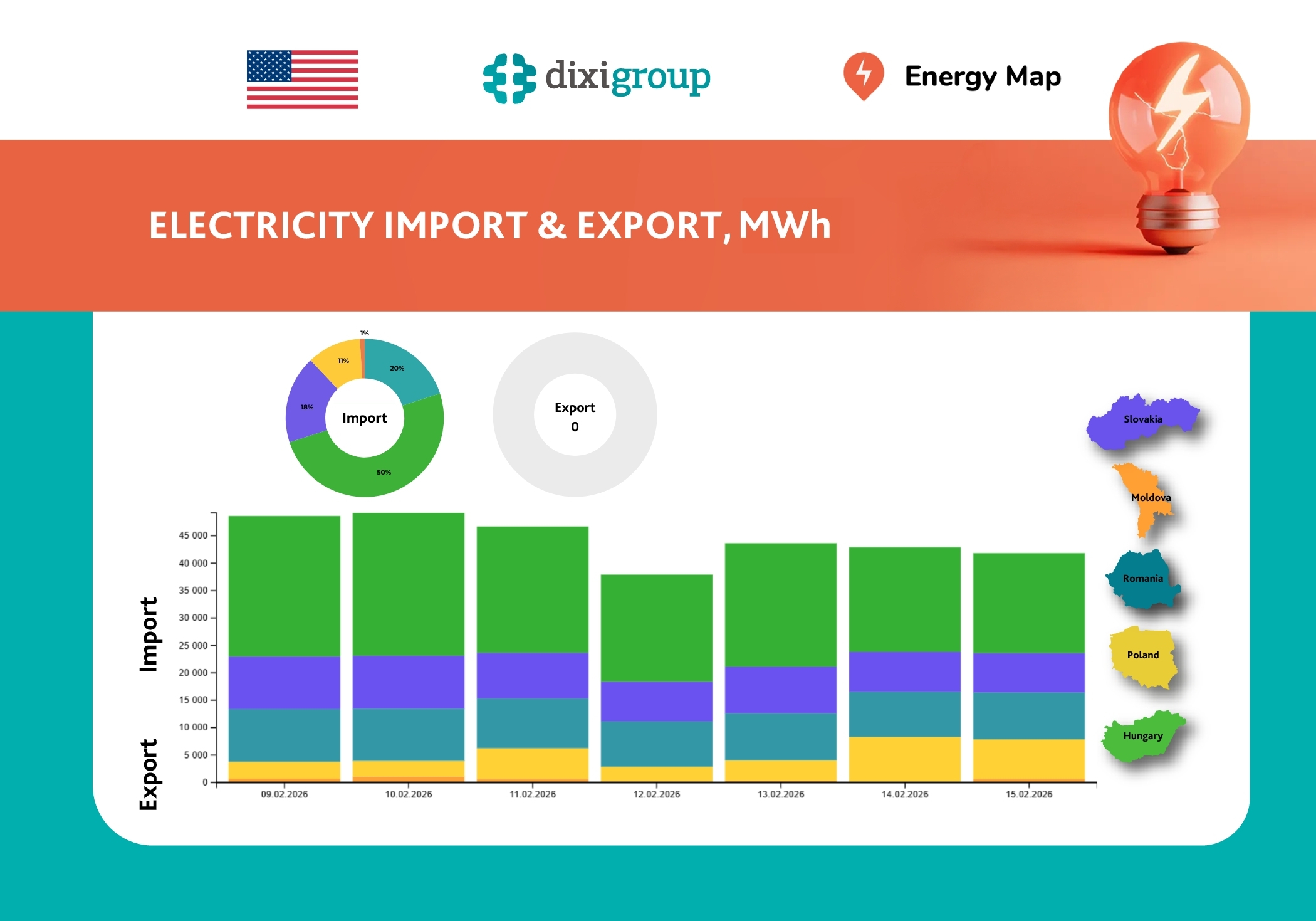During the presentation, DiXi Group presented the results of a study on local energy planning in Ukraine, entitled “Development of Municipal Energy Plans – A Community Perspective”.
The purpose of the survey was to gather current information on how the process of developing MEPs is taking place in communities, what needs to be improved, and what local proposals there are for updating the Methodology for Developing MEPs. According to the Law of Ukraine “On Energy Efficiency”, all communities in Ukraine must develop and approve this document by 13 November 2025.

“It is important that DiXi Group’s research is not only informative, but also contributes to practical change. We brought together representatives of state institutions, communities, and experts to share practical experience and hear the opinions of those who work directly with energy planning at the local level,” emphasised Viktoria Kovalenko, General Manager of Sustainable Development at DiXi Group.
A total of 670 people took part in the survey, including representatives of 653 communities from all regions of Ukraine. This made it possible to gather relevant information about the process of developing MEPs, assess the need for change, and explore what changes are needed in the methodology for developing MEPs.
“One of the objectives of the survey was to find out how communities and experts generally feel about the need to develop MEPS. Interestingly, the vast majority – 63% of respondents – said that the EMP is a necessary document that helps to take a systematic approach to energy development management, identify investment priorities and attract funding. The SEP also contributes to more organised work by local authorities,” said Lyubava Radichuk, Deputy Director of the Recovery and Reform Support Team at the Ministry of Development of Communities and Territories of Ukraine, analysing the survey data.

Among the communities that participated in the survey, 29 already have approved MEPs, while another 19 indicated that they have completed the document but it has not been approved. 112 communities are currently in the process of drafting MEPs,
Another 42 communities indicated that they are only planning to do so, and 14 reported that they do not even plan to develop an MEP. This is partly due to the fact that such communities are partially occupied or are located in areas of active hostilities, which legally have a deferral in the preparation of such a document.
Among the main obstacles to the development of MEPs, communities indicate: a lack of specialists, insufficient knowledge or experience, a shortage of source data, and a lack of time.



“Currently, we have a total of about 50 approved plans, but there should be about 1,400. This situation indicates that today we need to think about how to simplify the document so that it becomes more accessible and understandable for all communities in Ukraine so that they can plan their energy future,” concluded Artur Obidnik, Deputy Head of the Department – Head of the Strategic Development of Energy Efficiency Division of the Ministry of Development.
Respondents who answered the question about the need for changes to the document development methodology were divided in their opinions: 13% answered ‘yes’ and 13% answered ‘no,’ while the majority — 74% — were undecided. Half of them noted that the document is too complex and resource-intensive for small communities, pointing out the lack of methodological recommendations. In their opinion, it would be advisable to apply a differentiated approach for different types of communities, integrate digital tools, and take into account energy security and recovery issues.
The other half of the respondents noted that the current Methodology is complete and consistent with the legislation, so they proposed to first accumulate some experience in implementing the MEP and see the results of its application, and only then consider possible changes.



“When talking about MEPS, we return to the issue of the need to develop energy management in communities, so we will continue to focus on creating appropriate structures in communities”, said Volodymyr Peregudov, Senior Project Coordinator, GIZ.
A summary of the results shows that the main expectations of communities regarding a possible update of the Methodology relate not so much to changing its basic logic as to increasing its practical applicability: simplifying requirements for communities with limited resources, improving access to data, developing detailed explanations, templates and digital tools, and updating the content to reflect current challenges in the field of energy and recovery.



“The State Agency for Energy Efficiency and Energy Saving of Ukraine provides ongoing advisory, methodological and training support to communities in developing MEPS. Currently, standard assistance tools are in place, including written and telephone enquiries and explanations. Together with our partners, we also plan to post training webinars and instructions on online resources that will be useful for communities,” said Andriy Shiyan, Head of the Energy Efficiency Development Department at the State Agency for Energy Efficiency.
Overall, the survey showed that Ukrainian communities are aware of the importance of energy planning, but lack the resources and capacity to implement it. That is why systematic state support, a differentiated approach to communities, improved data accessibility, and methodological and personnel reinforcement are needed so that regions can increase their energy resilience in the context of war and reconstruction.
The survey was conducted by DiXi Group as part of the project ‘Municipal Energy Planning for Energy Transition’ with the support of the European Climate Fund (ECF), in cooperation with the project ‘Promoting Energy Efficiency and Implementation of the EU Energy Efficiency Directive’ implemented by Deutsche Gesellschaft für Internationale Zusammenarbeit (GIZ) GmbH with the support of the German and Swiss governments, and in partnership with the Ministry of Development of Communities, Territories and Infrastructure of Ukraine, conducted a nationwide survey of communities in September-October 2025.






